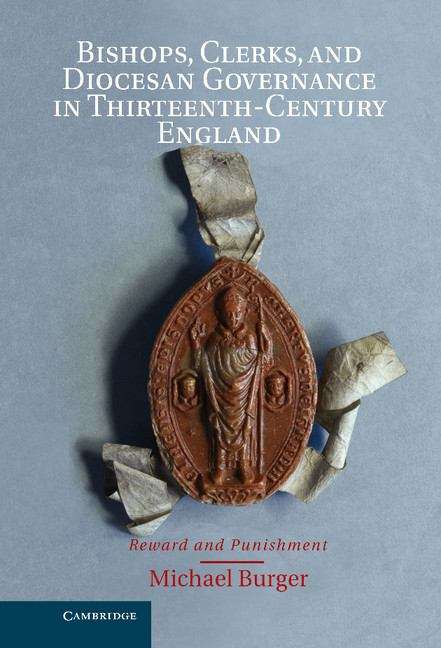Bishops, Clerks, and Diocesan Governance in Thirteenth-Century England
By:
Sign Up Now!
Already a Member? Log In
You must be logged into Bookshare to access this title.
Learn about membership options,
or view our freely available titles.
- Synopsis
- This book investigates how bishops deployed reward and punishment to control their administrative subordinates in thirteenth-century England. Bishops had few effective avenues available to them for disciplining their clerks, and rarely pursued them, preferring to secure their service and loyalty through rewards. The chief reward was the benefice, often granted for life. Episcopal administrators' security of tenure in these benefices, however, made them free agents, allowing them to transfer from diocese to diocese or even leave administration altogether; they did not constitute a standing episcopal civil service. This tenuous bureaucratic relationship made the personal relationship between bishop and clerk more important. Ultimately, many bishops communicated in terms of friendship with their administrators, who responded with expressions of devotion. Michael Burger's study brings together ecclesiastical, social, legal, and cultural history, producing the first synoptic study of thirteenth-century English diocesan administration in decades. His research provides an ecclesiastical counterpoint to numerous studies of bastard feudalism in secular contexts.
- Copyright:
- 2012
Book Details
- Book Quality:
- Publisher Quality
- ISBN-13:
- 9781107022140
- Publisher:
- Cambridge University Press
- Date of Addition:
- 09/18/12
- Copyrighted By:
- Michael Burger
- Adult content:
- No
- Language:
- English
- Has Image Descriptions:
- No
- Categories:
- History, Nonfiction, Biographies and Memoirs, Religion and Spirituality
- Submitted By:
- Bookshare Staff
- Usage Restrictions:
- This is a copyrighted book.
